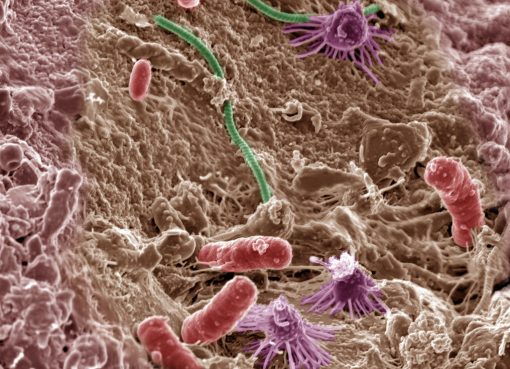Do you have any pet in your home? Dog or cat or birds, or even an aquarium? If the answer is positive, chances are there that you have been benefited hugely because of your pet as a companion. The benefits are far-reaching if we consider our mental and physical health. Many people dislikes keeping pets like dogs and cats in their houses as they have to take regular care of them, feed them, bathe them, and treat them when sick, till their death. But in return, they don’t realise how it helped them to stay healthy or even lose weight. Strange?
Moreover, it is scientifically proven now that if you have pets like dogs, cats or any pets, you are less likely to suffer from high blood pressure, cholesterol, diabetes, anxiety or depression. Not that we, the owners, only get health benefit from pets. The pets too do not suffer from obesity or depression when they are with their masters and loved by their masters.
If you are alone, nothing beats loneliness like coming home to a wagging tail or purring cat. Most pet owners are clear about the immediate joys that come with sharing their lives with companion animals. However, many of us remain unaware of the physical and mental health benefits that can also accompany the pleasure of snuggling up to a furry friend. It’s only recently that studies have begun to scientifically explore the benefits of the human-animal bonding. Pets have evolved to become acutely attuned to humans, and our behaviour and emotions. Dogs, for example, are able to understand many of the words we use, but they’re even better at interpreting our tone of voice, body language and gestures. Like any good human friend, a loyal dog will look into your eyes to gauge your emotional state and try to understand what you’re thinking and feeling (and to work out when the next walk or treat might be coming, of course). My Labrador is very intelligent and she can gauge my feeling well. When she is guilty, either she will keep her head down or divert her eyes from me.
Do dogs even get depressed? Like humans, some dogs can occasionally suffer from bouts of depression. Although dogs do not have the same capacity for reasoning like us, they can experience depression. In dogs, depression is not exactly the same complex clinical disorder that it is in people. However, dogs can certainly experience a depression. When they suffer from it, they eat and drink less and few even lose weight drastically, and do not play. They may develop a variety of physical illnesses. More and more scientific studies are now going on to study depression in animals and how to manage them. Can the same drugs be prescribed to them? What is the mechanism of depression in dogs?
There are many causes for depression in pets mostly in dogs and cats. They will show typical symptoms of depression as in human beings. They will mostly be eating less than normal, become lethargic, sleep all the time, enjoy less the activity which they enjoyed earlier. Dogs mourn the loss of human and animal companions, just as we do. It may be for a housemate or neighbourhood dog he played with is gone (vacation, moved away, died). Or, maybe a child in your home has grown up and moved out. There is no way to explain this to your dog. Losing a playmate, especially an in-home playmate is often a reason for canine depression. We may not notice it very often, but pets definitely do grieve. My Dalmatian pet died of heart attack exactly after a month my younger daughter who was much attached to him, left home for her higher study.
Moving to a new home, a general change of scenery (like a renovation), or even the weather can also adversely affect a normal happy dog. You can’t explain the reasons for such a dramatic change. It usually takes time for the dog to adjust to major environmental changes. Another pet very affable, died after shifting to a new apartment, and no one could diagnose the reason. Finally, it was suspected to be a case of poisoning due to paint used in the renovation (lead present in paint is a lethal poison).
The dog may have a fear or phobia that makes him seemingly depressed. Dogs sometimes show fear in different ways than expected. The dog may be trying not to appear scared since that might make him more vulnerable. Instead, he just retreats from normal activities to protect himself. During the festive season, like deepawali or holi, you might have experienced this. They will hide in a corner and will not come out till the crackers fell silent.
Are you depressed or sick? Your dog will be able to pick up on your energy and may begin to feel similar to how you feel. Or, your dog might be depressed if you are gone a lot. This may be similar to separation anxiety (but instead of “acting out” your dog gets depressed). In some cases, there is no known reason for the depression. This can be very frustrating for us as an owner. Not only me, many pet owners also know that their dog is upset when they see that their owner is ready with baggage in his hands. They can easily comprehend that he or she is going away.
Pets, especially dogs and cats, can reduce stress, anxiety and depression, ease loneliness, encourage exercise and playfulness, and even improve our cardiovascular health. Caring for an animal can help children grow up more secure and active. Pets also provide valuable companionship for older adults. Perhaps most importantly, a pet can add real joy and unconditional love to your life. In western countries, since children no longer stay with their parents, a pet becomes their sole companion and there are many poignant stories about their attachment.
Many health problems may produce depression in dogs. It is important to first rule out a physical cause for the dog’s abnormal behaviour before things get worse by visiting a vet. If the vet has ruled out all the possible physical causes of depression, then one should look for mental/emotional reasons.
Pet owners are less likely to suffer from depression than those without pets. People with pets have lower blood pressure in stressful situations than those without pets. One study even found that when people with borderline hypertension adopted dogs from a shelter, their blood pressure declined significantly within five months. Playing with a dog or cat can elevate levels of serotonin and dopamine, which calm and relax. Pet owners have lower triglyceride and cholesterol levels (indicators of heart disease) than those without pets. Heart attack patients with pets survive longer than those without. Pet owners over 65 years of age make 30 percent fewer visits to their doctors than those without pets. While people with pets often experience the greatest health benefits, a pet doesn’t necessarily have to be a dog or a cat. Even watching fish in an aquarium can help reduce muscle tension and lower pulse rate.
One of the reasons for these therapeutic effects is that pets fulfil the basic human needs for touch. Even hardened criminals in prison show long-term changes in their behaviour after interacting with pets, many of them experiencing mutual affection for the first time. Stroking, hugging or otherwise touching a loving animal can rapidly calm and soothe you, when you’re stressed or anxious. The companionship of a pet can also ease loneliness, and most dogs are a great stimulus for healthy exercise, which can substantially boost your mood and ease depression.
Taking a dog for a walk, hike or run are fun and rewarding ways to fit healthy daily exercise into our schedule. Studies have shown that dog owners are far more likely to meet their daily exercise requirements – and exercising every day is great for the animal as well. It will deepen the connection between the owner and the pet, eradicate most behaviour problems in dogs, and keep your pet fit and healthy.
Companionship can help prevent illness and even add years to our life, while isolation and loneliness can trigger symptoms of depression. Caring for a live animal can help make us feel needed and wanted, and take the focus away from our day to day problems, especially if one lives alone. Most dog and cat owners talk to their pets, some even use them to work through their troubles.
Pets can facilitate their owners, helping to start and maintain new friendships. Dog owners frequently stop and talk to each other on walks, hikes, or in a dog park. Dog owners also meet new people in pet stores, clubs, and training classes. These things seem very unimportant but it helps in making new friends whom we might have never interacted. The companionship of an animal can offer comfort, ease anxiety, and build self-confidence for people anxious about going out into the world. Because pets live in the moment – they don’t worry about what happened yesterday or what might happen tomorrow – they can help you become more mindful and appreciate the joy of the present.
Many pets, especially dogs, require a regular feeding and exercise schedule. This helps them to maintain a balance and help us too. No matter our mood – depressed, anxious, or stressed – the moment your pet comes near you, it is time for you to take out for walk, exercise or feed.
Stroking a dog, cat, or other animal can lower blood pressure and help you quickly feel calmer and less stressed. Release of feel good hormone oxytocin does the trick, just like mother child bonding. Our body is balanced by different hormones or neurotransmitters, like dopamine, serotonin and oxytocin which help us to adjust to stress, feel good and become loving and affectionate to our near and dear ones, may be your pet. Pet therapy is very much popular now-a-days just like another therapy mediclowning. I will write about this next time.
Dr. Chandana Choudhury Barua
Professor, Department of Pharmacology, CVSc, Khanapara




